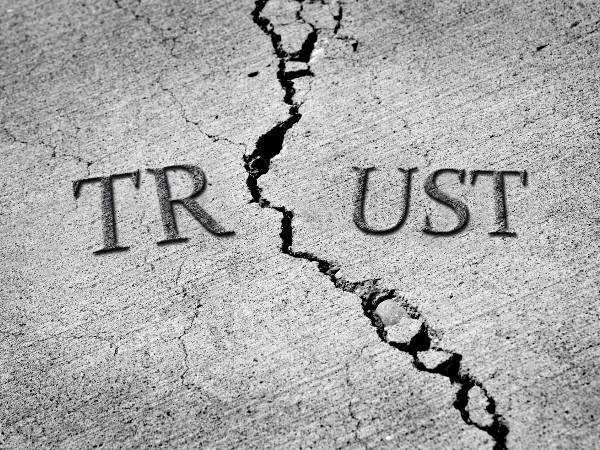If the Tubes Really Want to Put My Mind at Ease…
 NEW YORK – In the wake of the announcement Congress intends to repeal a Federal Communications Commission rule (albeit one that hadn’t become effective yet) that would have required internet service providers to obtain a customer’s explicit consent before selling their “sensitive, private information” to third parties, there has been an understandable rush of concern among web surfers.
NEW YORK – In the wake of the announcement Congress intends to repeal a Federal Communications Commission rule (albeit one that hadn’t become effective yet) that would have required internet service providers to obtain a customer’s explicit consent before selling their “sensitive, private information” to third parties, there has been an understandable rush of concern among web surfers.
Along with the surge in consumer angst, there’s a corresponding rush on the part of some sites and services to reassure web surfers these platforms are going to do to their part to secure the privacy of their users.
Naturally, with this much attention focused on web privacy, several popular porn sites are publicizing what they’re doing to become more privacy-friendly for their fans.
“We wanted to continue our concerted effort to maximize the privacy of our users, ensuring that what they do on our platform remains strictly confidential,” said Corey Price, Pornhub’s vice president. “With the switch [from standard HTTP web-routing protocol to the more secure HTTPS], we are able to protect their identity as well as safeguard them against exposure to malware by third parties.”
This is all to the good, but if tube sites want me to “watch worry-free” as the New York Post headline put it, switching over to the HTTPS protocol isn’t even close to half the battle.
While Pornhub and other popular tube sites have come a long way from their “anything goes” roots, when one safely could assume the vast majority of uploaded content was added without the permission of the rights-holder, pirated material still gets uploaded frequently. This may not bother many tube site visitors, but it certainly bugs a lot of us within the adult industry.
I’m also not likely to enjoy without concern many of the user-generated videos found on these sites, in part because many of the people who create and upload them make no effort whatsoever to comply with 18 U.S.C. 2257. This facial noncompliance with the law makes me uneasy on several levels, and it ought to make the tube operators nervous, too.
All the transport layer security in the world can’t mitigate these worries. Only substantial changes in policy by the tubes themselves can. Given the current legal and cultural landscape, though, I doubt any tube site is even considering changes of the sort I have in mind. Even so, it can’t hurt to voice what some of these changes might be.
One thing tube sites could do is require uploaders to include at the start of each video the legally-mandated statement describing the location of the relevant age-verification records. Tube operators may have reason to believe their sites aren’t subject to 2257 because their businesses are not located in the U.S., but that’s a debatable proposition, given that any business that knowingly and intentionally distributes a product in the U.S. market is potentially subject to U.S. law and regulations in any number of ways. Not debatable, however, is that if the uploader of the clip is based in the U.S., there’s no ambiguity at all as to whether the uploader is subject to 2257 as a domestic producer.
This all probably seems like nitpicking, a series of irritating whines that paint me as an old-school porn-industry dinosaur — or, as our esteemed Commander in Chief might put it, a “hater of tubes.” But I don’t raise these concerns only on my own behalf or for the benefit of other users. These changes could substantially lower the legal risks involved for the tube operators, as well.
Setting aside the kind of criminal concerns at issue under 2257, tightening up their disclaimers, upload policies and content policing would help inoculate tubes sites against civil claims, as well. If you’re thinking American courts would be unlikely to assert jurisdiction over a foreign-owned site in the context of a civil case, then clearly you missed the news a few years back when a couple of American plaintiffs secured settlement agreements from major foreign tube operators.
While it’s true the plaintiffs might not have won if these cases had been fully adjudicated, I think it’s safe to say these deals weren’t struck because the defendants were feeling so generous they decided to ignore the advice of an attorney telling them their case was a slam dunk.
Again, none of this is to say the changes Pornhub and others like it are making to augment the privacy of their users are bad things or should be discouraged. I’m just saying when it comes to boner-killing worries, my searching and browsing details aren’t the only potential turds in the free-porn-site punch bowl.













